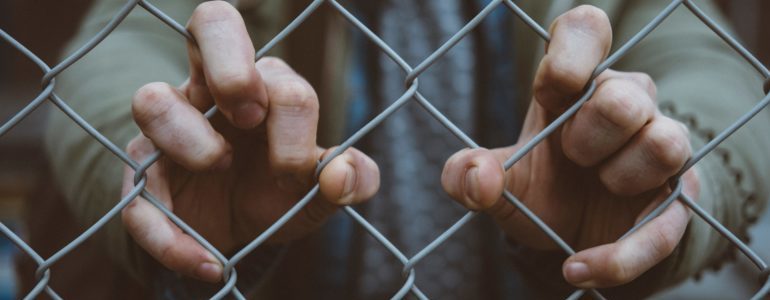Why it’s easier to escape a flooded cave than an immigration policy

12 children trapped in a cave in Thailand. 20 children trapped in an orphanage in Libya, orphans of ISIS fighters, now stateless and parentless. 300 Palestinian children in prison in Israel, 995 children separated from their parents at the American border.
All children, all victims of circumstances not of their own making (expect perhaps those in the cave). So why, asks my Facebook feed, can the resources, commitment and care be mobilised for one group and not for the others – what’s the difference between all these children?
The difference isn’t between the children. The difference is the difference between a difficult complicated problem and one that is truly complex. The Thai boys found themselves in a terrible situation. Trapped by flood water four miles deep in a cave, unable to return the way they had come, with no food, no light, little fresh water and running out of air. But, there was no geopolitical turf war keeping them in that cave (just water), there was no multigenerational conflict that had led them into that cave (just a sense of adventure), there was no traumatised population trying to rebuild their own lives and keen to ignore them (just their parents, their communities, their government all wanting them free), there was no risk that, if they were released, more would follow them into that cave. All of these factors do exist for our other trapped children.
Extracting ‘The Wild Boars’ was a vastly complicated task. It involved solving problems never seen before (have any children ever cave dived?), it involved risk, and demanded incredible coordination across a huge multilingual, multinational team. It needed a few heroes and heroines. However, it was not complex. The problem had a single root cause – too much water in the cave. And whilst the problem might have been getting worse as the oxygen levels fell and the rains came, the nature of the problem stayed the same (how to get the children out of a submerged cave). And above all, the current situation didn’t deliver any benefits to anyone and no one stood to lose anything if the boys were released.
By comparison let’s take the children at the American border separated from their parents. This separation is a policy from a State that sees itself under threat from illegal migration and for whom national security is at stake. It is a policy with a purpose beyond the individuals experiencing it, a policy meant to spread fear and discourage other would-be migrants from travelling. As a process it is a response to a (very reasonable) legal agreement that children should not be detained in prison, and another policy that demands would be migrants caught trying to cross the border illegally are prosecuted (and imprisoned while they await trial). As a media storm it demonstrates Trump’s ‘toughness’, his willingness to do whatever it takes to ‘Make America Great’. And potentially, more than any of these things, it is a distraction from a whole load of other political activity going on a long, long way from the Mexican border. And this is why releasing these trapped children will take more than heroics.
Indeed, maybe it was the stark simplicity of the Thai boys’ situation that galvanised action and attention. Could the ingenuity of people take on the absoluteness of nature? Literally, could we hold back the flood waters? Could clever committed well intentioned people work together to pull off a miracle? Complex problems are not like this. Complex problems take more than resources, more than goodwill, more than the sheer overwhelming commitment of a few; they need more than a few brilliant heroes and heroines.
And so, the reason the Thai boys have been rescued whilst those in Libya, the USA or Palestine have not is not because we care more about them, but because it is easier. It is easier to take 12 non-swimming children and 1 adult cave diving in a confined dark cave and then carry them through 4 miles of underground tunnels and haul them up a vertical rockface than it is to reform USA immigration policy, find a state to adopt ISIS orphans or resolve the Israel Palestine conflict. Complex problems are hard to work with. They take time and effort, the ‘solutions’ are rarely all successful or even apparent, and yet tackling such problems is fundamental to the peace, prosperity and ultimately, humanity of us all.
So, let us take on complicated problems because we can, and complex problems because we must.
Want to read more about working with complex problems? Then check out Harvard Business Review report on Tackling Global Challenges.
Written by Kate Simpson of Wasafiri Consulting Ltd.
Back to the Knowledge Hub




















